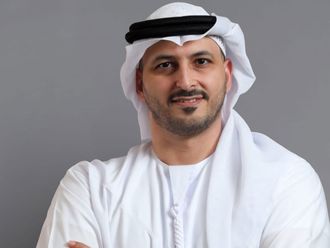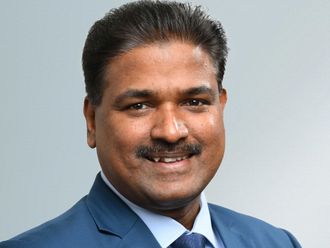
A new book from Dubai-based publisher, The Dreamwork Collective, is aiming to support readers to dispel their self-doubt and befriend the voices that shame them. Good Enough: A Roadmap for Compassionate Self-Acceptance is written by psychotherapist and coach, Nikki Heyder, who channelled her own experience of limiting belief into helping others to navigate the world with greater confidence and resilience. In this interview she explains her motivation and hopes for the book.
Tell us about story behind the book.
Good Enough: A Roadmap for Compassionate Self-Acceptance was birthed after my own personal experiences with navigating shame and beliefs of not being good enough - not smart enough, or loveable enough or strong enough. How my own sensitive nature and emotionality coupled with my upbringing and society led me to feel like I could not attract the relationship or career or desires that I truly held for myself. Since becoming a psychotherapist and coach, it has also been the most common experience that I work on with my clients.
I realised after many years, that we all carry some form of ‘not enoughness’ and that this is in fact a very normal part of our human experience. The book offers readers a way to better understand how these beliefs come to be, what happens when we don't address them, and how the path towards self-acceptance and compassion can pave the way for greater inner peace, fulfilment and abundance.
What was the trigger that made you start to write?
When I was six months pregnant with my son, I started to think a lot about the experience of childhood and how during pregnancy we are bombarded with so much information on what to do in order to be a ‘good’ parent - or how to have the ‘perfect’ birth. That, alongside my studies at the time with Dr Gabor Mate and his faculty within the Compassionate Inquiry Practitioner Training led me to reflect on my own journey and that of many of my clients. As I started to filter out the 'noise' for myself and lean more into trusting my own intuition and practicing self-compassion more deeply for myself, I felt a calling to share the same process with others.
Who is the book for?
The book is primarily aimed at women who struggle with their own 'not good enough' statement. Whether that be not pretty enough, smart enough, loveable enough, or even if they feel like who they are is too much. It is for the people pleasers out there who believe that their worth is determined by other people's approval, and for those of us who are driven by perfectionistic tendencies, feeling as though we need to live our lives in accordance to the expectations of others (and not what we authentically desire).
It helps those who are stuck in anxiety and feel pressured by family or society or who have delved into addictive tendencies around food, body image or other substances in order to 'remedy' their shame.
Why do you think people have the sense that they aren’t good enough?
I think it's a very normal human experience which develops during our childhood whilst we are determining our sense of self and how we 'fit in' to the world around us. One of our core needs as humans is the need to belong and be in connection with others. As our brains develop coupled with our need to be attached in order to survive, we come up with beliefs and stories which dictate who we are supposed to be. Whilst many of these beliefs served us well at the time, the reality is that they simply don't apply to us as adults and can cause us to live lives which feel disconnected, stressful and inauthentic.
Our brains believe what we repeat the most and so the process of unlearning these beliefs can be difficult but incredibly rewarding.
How does not-enoughness affect people’s day-to-day life?
The experience of shame can limit us in so many ways - the two most common behaviors which I witness amongst my clients are people pleasing and appeasing in order to gain approval, and perfectionistic tendencies. Both can be detrimental to our lives as they cause us to feel more stressed, more anxious and more dissatisfied and disconnected with ourselves. As people pleasers we tend to drop all of our boundaries leading to feelings of exhaustion, burnout and resentment.
As perfectionistics, we strive for the impossible - setting unrealistically high standards and never being able to appreciate who we are or what we have - once again leading to anxiety, burnout and even addictive tendencies. We might say 'yes' to things which we actually don't want to do. We overextend ourselves at the cost of our health. We allow toxic relationships to dampen our self-esteem. We don't take healthy risks or seek out opportunities which we truly desire and dream of.
What do you hope people get from the book?
I wanted this book to feel like you were experiencing working with me in real life. Therapy and coaching is not something that everyone can afford and therefore I wanted it to be able to offer an affordable pathway for those interested in personal development and healing. The book couples both knowledge and understanding of mental health themes and concepts, as well as offering practical tools and techniques so that readers can actually put their knowledge into action. Whilst awareness and understanding are huge parts of the self-development process, the hardest part is actually putting it all into action in your own life.
The book offers regular mindfulness check in exercises, somatic practices, nervous system regulation techniques and journal questions to enable the reader to really apply its contents to their own unique story and lives.
Can you share some tips on how to start to overcome the ‘not-enoughness’?
I would say that it's important to stop being in resistance to the messiness of being human. The reality is that we all struggle sometimes. We all have hard days. We all come face to face with heartache, difficulty and painful emotions. All of us experience some form of trauma in our lives. This is the experience of being human. The more we resist this fact, the harder it is to navigate life. So, leaning into acceptance of our messiness is so important.
Secondly, learning how to speak to ourselves like you would to your best friend or person you love most in the world. So many of us live our lives dictated by a relentless inner critic who, albeit serving a purpose of protection and safety, is ultimately not helpful when it comes to realiSing our innate worthiness. Learning how to meet our emotions and challenges with kindness, understanding and wisdom helps us to navigate the world with greater resilience and more confidence.
If the book could convey a single message, what would you want that to be?
That being a human is hard sometimes - but that it doesn't mean you aren't worthy or good enough exactly as you are.
Good Enough: A Roadmap for Compassionate Self-Acceptance is available at Amazon.ae







